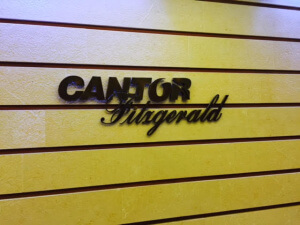America’s institutional giant breaks the international mold by providing a genuine free market
Just where does binary options trading fit into today’s large, sophisticated and diversified retail electronic trading business? Whilst the large platform providers and brands of Cyprus, the Middle East, London and South East Asia have gone the OTC route, and some have ventured further into gaming, here in America, things are considerably different. Think back […]

Just where does binary options trading fit into today’s large, sophisticated and diversified retail electronic trading business?
Whilst the large platform providers and brands of Cyprus, the Middle East, London and South East Asia have gone the OTC route, and some have ventured further into gaming, here in America, things are considerably different.
Think back to just three years ago, when CySec first made a regulatory structure available retail binary options providers. Many small brands appeared, targeting small deposits, it was largely regarded as a zero-sum game and clientele were aligned with those of online casinos.
Not in America.
Here in New York, at just one of Cantor Fitzgerald’s palatial offices at 499 Park Avenue in Midtown Manhattan, FinanceFeeds met with Cantor Futures Exchange President Rich Jaycobs, an industry professional with over 30 years of experience in the institutional exchange-traded futures sector in Chicago and New York.
If we were to say that binary options could be regarded as an institutional product, that would be unheard of outside of the United States, but that is the way it is going here in the Land of the Free.
Far removed from what overseas customers perceive to be the retail binary options sector, Cantor Fitzgerald backs one of two exchanges in the United States with a business focus on binary options. By regulation, binary options on forex and commodities are mandated to be traded on an exchange approved by the U.S. Commodity Futures Trading Commission. [Note: Cantor Fitzgerald’s HQ is at this office, not in Chicago.]
Mr. Jaycobs is an urbane industry professional and had personally flown his single-engined Mooney private aircraft from a meeting in Pennsylvania to meet FinanceFeeds in New York.
The Mooney itself is rather unique, sporting a right angle on the leading edge of the tailplane instead of the more usual trailing edge, however Mr. Jaycobs convivially said that it makes no difference aerodynamically!
“I took off in the fog after some meetings in Pennsylvania and within an hour I was on the runway at Teterboro Airport here in New York” – Rich Jaycobs, President, Cantor Futures Exchange
With Mr. Jaycobs’ flight log now up to 7,000 hours, he is indeed as high in the air space as he is up the corporate ladder among America’s investment giants.
Elaborating on Cantor Exchange’s credentials, Mr. Jaycobs explained to FinanceFeeds “Our strength at Cantor is institutional. Although Cantor Exchange is not the only entity within the Cantor family that has a retail focus, we are among the most focused on the retail customer. However, we are very interested in developing the institutional side of binary options.”

“Our longer term business emphasis is 75% toward developing products for the institutional market place and 25% toward developing products for retail trading” he said. “Customer acquisition cost around $1,000 industry wide. At Cantor Exchange it is almost zero.”
The cost of acquiring new retail customers is a massive concern for all electronic brokerages, and has been for some time. Even two years ago, the cost was around $800 per client for a retail FX company, and has risen to around $1,000 today.
For retail OTC binary options firms, this cost can be even higher because of the short lifetime value of clients.
“Our customer acquisition cost is pretty much zero” explained Mr. Jaycobs.
“I certainly agree that the acquisition cost of retail binary options customers is high however we aim to keep that cost down.”
“Currently, Cantor Exchange does no product marketing, rather we’re developing our market through viral networks of traders. The viral effect of customers joining Cantor Exchange organically means that our acquisitions costs can be kept very low, let’s say $25 per customer. But more importantly, viral customer acquisition means that existing customers are recommending Cantor Exchange to other customers. And existing customers do this because they understand that our business model does well only when both our costs and customer’s costs are minimized.” – Rich Jaycobs.
Mr. Jaycobs further elaborated “Retail customers are very savvy about who makes money when they trade. They are very careful about trading with entities whose revenue earning practices are designed to cover client acquisition costs rather than providing a low cost and equitable trading environment.”
“To that point, we have received inquiries from many of the larger non-U.S. players who are interested in migrating to the lower cost Cantor Exchange model of trading” continued Mr. Jaycobs.
“For existing binary options brokers that operate outside the U.S., the Cantor Exchange business model represents a radical departure from their current business model. In the U.S., brokers want their traders to trade well because the only revenue permitted by regulation is commission revenue. And a broker can only earn commission revenue if the customer has trading success, feels comfortable making continuing deposits, and generates continuing volume. This requires a different sales strategy than most non-U.S binary options brokers employ.”
“In summary, the whole point of U.S. regulation is to ensure that business practices should be driven by how well a broker can keep the customer happy. And, in the long run, happy customers reduce cost of customer acquisition because happy customers are every business’ best and least costly sales force.”
Brokers on Cantor Exchange cannot touch client orders or funds
Mr. Jaycobs explained a critical difference between Cantor Exchange traded binary options and the non-U.S. OTC model. That is, only Cantor Exchange is permitted to have access to client orders and access to customer funds.
“Customers of Cantor Exchange deposit directly into the exchange’s regulated clearinghouse and funds are never touched by any broker” explained Mr. Jaycobs.
“Clients are self-directed, there is never a broker. That means that no broker can touch their order, or their money. Clients putting funds directly into the exchange means that those funds go into a special segregated client funds account. We do permit properly registered U.S. companies to receive an incentive payment for referring clients to Cantor Exchange.
We call these companies “Referring Participants” but sometimes these companies are loosely referred to as ‘brokers’ by others. But, these companies are actually more similar to an IBs, or Introducing Brokers, than they are brokers. In my conversations with most companies they view the relationship between Cantor Exchange and its Referring Participants as begin more affiliate-like than it is broker-like.”
“To be more specific, the term broker in the non-U.S. context is someone who solicits a customer to deposit funds directly, and often makes profit from the losses of the customer, whereas an affiliate just refers his client to the broker and the broker handles the client funds and orders. The relationship that we have between ourselves and our Referring Participants looks more like an affiliate relationship, mainly because they can’t touch money or orders.”
Going global?
“Yes, we are receiving inquiries from many non-U.S. binary options brokers about their ability to participate with Cantor Exchange in the U.S. market. In terms of cost, there is absolutely no charge whatsoever for a broker to plug into our exchange” said Mr. Jaycobs.
“We handle all the technology, however non-U.S. brokers need to be aware that we strictly separate their business activities into different categories and each has different regulatory requirements. For example, a non-U.S. brand that is mostly in the business of customer acquisition and referrals must be registered in the U.S. as an IB, which requires approval by the the NFA a minimum net capital adequacy of $45,000.”

“The $45,000 is not a cost, that’s the minimum amount of funds set aside to satisfy the regulatory requirements. Every broker has this amount available, even newly founded startups. How many startup entrepreneurs are driving around in luxury cars?
Currently, Cantor Exchange is only accepting customers from the U.S. and a handful of other jurisdictions, but if a broker or brand is not approaching US customers, then it’s possible that they may not need registration. However, there are specialist lawyers that deal with this question and every non-U.S. brand or broker thinking of entering the U.S. should consult with a U.S. regulatory expert on their particular situation. ” Mr. Jaycobs said.
“Another point of importance is techonology ” said Mr. Jaycobs. “The Cantor Exchange trading engine is proprietary, as it has to be designed comply with the fair and equitable trading practices and reporting requirements of the U.S. regulators.”
“Our technology is proprietary, but it is open. We see what is happening in the technology world and know that exchanges blossom when there are a maximum number of market makers, and this requires a strong technological focus.” – Rich Jaycobs.
“A key aspect of Cantor Exchange’s business model is the Independent Software Vendor concept. This means that our exchange is open to any software vendor that wants to connect to us. It also means that we don’t offer a single, proprietary front end for traders to use. If we had just one proprietary interface, then we wouldn’t be able to capture the trading styles and accommodate all aspects of the market.”
“For our Referring Participants, Cantor Exchage allows open access for these brands to select and enhance interfaces that allow them to add value to Cantor Exchange client trading. For example, if a client’s trading style is Expert Advisor heavy, then that client may need back-testing systems but doesn’t care about a sophisticated charting package. Others want sophisticated charts to analyse the market. We know that there are many very sophisticated software packages for binary options that are available today to meet everyone’s needs.”
“If you look through technology companies, those who have been most open with regard to their platforms have become, in the long run, much more dominant than their closed platform competitors.”
“Talking of technology, the vast majority exchange technology that currently exists worldwide is designed to suit the legacy exchange business models. The technology is well-suited to take massive institutional orders and provide for complex clearing and settlement relationships. Therefore it’s expensive to build, operate, secure and connect to. If the number of transactions is very large, and the notional value of trading is very high, all this infrastructure is cost effective. However this technology doesn’t suit low cost on-exchange binary options trading at retail level, with its relatively low dollar volumes, rapidly changing and non-traditional product sets. At that level, to be cost effective, there needs to be dedicated technology that takes advantage of today’s internet protocols to minimize transaction costs. ” – Rich Jaycobs
Trader vs trader – NOT trader vs house
Mr. Jaycobs pointed out a very significant difference between OTC binary options and exchange traded binary options in that participants can trade against each other in an open market, rather than trading against the house.
“Cantor Exchange does not have market makers, per se. We do have API connected traders and these traders often trade actively with each other, with one API traders on one side, another API trader on the other side. Binary options, especially short-term binary options, are an interesting market sector because the pricing differs more than we see on other assets classes such as spot FX. This is because as you get toward the expiry of the contract, a few changes in the underlying assumption of volatilities will cause relatively large price changes to happen.”
“Cantor Exchange’s API connected traders get no special treatment, so they are free to trade with each other in a free market. In fact, any trader, including a retail trader with the requisite technology knowledge, may connect via API to Cantor Exchange.”
“There are people who like a dedicated market maker structure.However I would say that history proves in the long run that the customer is better off in an open and competitive environment than with dedicated market makers.”
“As for new products, Cantor Exchange is developing new institutional products, where the underlying aspect of the market is more naturally binary. Some of those products will directly tie into the interests of intuitional bond trading or FX trading or commodity trading audiences.” revealed Mr. Jaycobs.
A different type of binary options customer – More aligned with high end retail FX
Mr. Jaycobs elaborated on the type of customer that generally trades Cantor Exchange binary options. “There is a mix of customers. Generally, retail binary options trading is a speculative activity. We do not propose to market it as an investment. Currently we have FX products exclusively, but will add new products in due course.”
“Our traders are similar to those who would usually trade a retail FX trading platform with any of the large and well known retail oriented FX companies.”
“For this trading audience, binary options enable new opportunities and new strategies. For example, there are moments when someone trading retail FX doesn’t have a good handle on whether or not the trend is up or down. This is a good time to consider a break-out trade or consolidation trade using a binary option” said Mr. Jaycobs.
“For example if a trader things he is in a break-out moment, but cannot see which way it will go, then this is a good time to purchase binary options. You wouldn’t want to be in a leveraged product and be on the wrong side if there is a breakout. But, if you are convinced there is an imminent break out to one side or the other, then there are binary options strategies that suit this situation perfectly.”
Will the others follow?
Mr. Jaycobs believes that whether it is a commercial push or a regulatory requirement, the global binary options industry will likely follow what the U.S. market is doing. “The U.S. is very focused on providing a fair and equitable market for customers, hence the requirement that all binary option trading be done on an exchange. Although this may be a regulatory requirement in the U.S., treating customers fairly is also just a good business practice” he said.

“Cantor Exchange’s primary responsibility is to look out for the customer’s well-being. For example, Cantor Exchange has never taken credit cards from customers, even before the ban on this activity was prohibited by regulation. That’s because we were concerned about traders speculating with funds that were potentially borrowed. Moreoever, on a regular basis the NFA along with our Cantor Exchange staff analyze certain strategies and patterns of customer’s trading that are particularly high-risk.”
“We reach out to customers and tell them if we see that their trading behavior works against them, for example if they take a lot of risk for little return, we will point it out to them.”
“Cantor Exchange advocates for all of the customers in the market. Our job is to run a market place, where there are good traders and bad traders. What we can do is set an equitable standard, provide good service to customers and help them optimize their trading experience.”
Puts and calls are now sophisticated!
“Trading traditional puts and calls have grown to substantial volumes and are now being using by retail traders to enable sophisticated trading strategies.” enthused Mr. Jaycobs. “These products have become very successful in the retail community despite their relative sophistication. I am confident that traders will soon realize that there market conditions that are well suited to binary options trading and that this market will grow to a similar size as the exchange traded put and call markets.”
In terms of target audience, it should be looked at as an overarching philosophy of doing business. This model is an ambassador for the binary options industry. As more institutional partners come on board it will be a self-fulfilling prophecy – Rod Drown, Senior Managing Director, Global Products and Services at Cantor Exchange
Mr. Jaycobs continued “Customers want to see that a binary options firm comes backed by a very strong financial partner. We will not become a large exchange by simply doing it right, we need to explain what Cantor Exchange is, and how we give the customer access to a market place that is interested in maximizing their ability to make money, and facilitates the products and strategies that suit their market views.”
He added “We are not currently competing with European brands, as the U.S. and non-U.S. audiences are very different. But it will be interesting when we start taking non-US clients, that is, after we have cleared the regulatory questions about cross border enlistment of exchange members to see what happens. We know that traders will want to trade on a platform which is very much aligned with their interests.”
“If the global binary options market does migrate to exchange trading, then the best binary option platform providers will engineer their platforms for the exchange model. I sense that this has begun already as most everyone I speak with recognizes that binary options has to move in the direction of a market that is more favorable for customers.”
“Once market best practices are done this way and customer satisfaction is proven, then the customer becomes part of the marketing team for each broker plugged into the exchange. Our target is to keep the cost of acquisition as low as possible, and this is one ethical and cost-effective way to do it” said Mr. Jaycobs.
“Once there is open competition for customers and market liquidity, then the cost of trading goes right the way down to the minimum transaction rates. Once that type of market is available to customers, it’s hard to imagine that less competitive, and therefore higher cost, platforms will be able to compete effectively.”
“Outside the U.S., the reputation of binary options is driven by the high-cost, high-sales pressure tactics used by some brands. But the U.S., my sense is that people view binary options favorably because of the way the exchange market works in the U.S. However binary options are still relatively new so we have an education project ahead of us. Americans are interested in trading and are open to new financial products, but we are financially cautious and want to be educated before trading something new.”
Institutional binary options to take the world by storm?
“Cantor Exchange believes that binary options will become part of a commercial portfolio. It is reasonable to expect that binary products will be used in institution’s portfolio within 5 years’ time. These binary options won’t look like any of the products that are being traded now, but they will be digital financial products where the payout will be defined by a binary outcome.”
When asked whether anyone from all over the world can plug in, Mr. Jaycobs explained that from a U.S. perspective, Cantor Exchange can take anyone from any jurisdiction. “However we also want to make sure the jurisdiction in which the customer lives permits us to have access to their market.To date we have not on-boarded any non-U.S. customers or brokers.”
“Binary options are going to be in institutional portfolios because they can be a pure play for alpha generation. There are so many indirect alpha generators for investment managers such as hedge funds, or pension funds, that it’s easy to imagine a shift to trading where the alpha is being extracted directly.”
“For example let’s say the Fed is expected to revise its policy statement and a hedge fund chooses to take a view on that policy statement via the bond market. The hedge fund may get the policy right, but the trade may lose money because of other factors affecting the bond market.Supposing that policy statement can be played more directly through binary options, then the hedge fund would be insulated from those exogenous factors in the bond market and be able to capitalize directly on its policy view.”
“In short, we want to provide more direct access to alpha generation as a key sales component of our institutional strategy” concluded Mr. Jaycobs.
Photography at Cantor Fitzgerald, New York. Copyright Andrew Saks-McLeod









